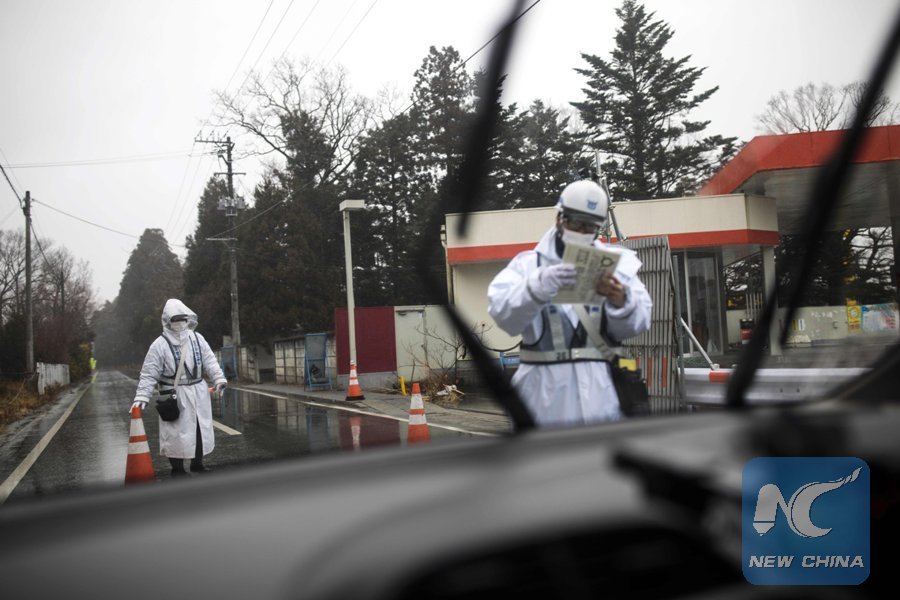
This picture taken on March 5, 2018 shows a guard checking the permission documents at an entrance of the exclusion zone of Tomioka town, Fukushima prefecture, as Japan prepares to mark the 7th anniversary of the devastating 2011 earthquake and tsunami that triggered the Fukushima nuclear disaster. (AFP Photo)
UNITED NATIONS, Oct. 25 (Xinhua) -- UN special rapporteur on Toxics on Thursday urged the Japanese government to halt the ongoing relocation of children and women of reproductive age to areas of Fukushima where the radiation levels exceed one mSv per year.
"We are quite concerned, in particular for the health and well-being of children who may be raised or born in Fukushima," UN Special Rapporteur on Hazardous Substances and Wastes Baskut Tuncak said of the returns of the former residents, who evacuated in the aftermath of the 2011 nuclear disaster.
He voiced concern over the Japanese government's decision to raise the acceptable level of radiation exposure by 20 times, saying it was deeply troubling.
After the nuclear disaster triggered by a massive earthquake and tsunami, Japan raised the acceptable level of radiation for residents in Fukushima from one mSv per year to 20 mSv per year.
When asked about the scientific basis behind the raise, Tuncak said "that would be a very good question for the Japanese government (to answer) in terms of justifying their actions and the decisions."
The rapporteur said a UN human rights monitoring mechanism known as the Universal Periodical Review has recommended that Japan lower the acceptable level of radiation back to one mSv per year, but he is "deeply concerned the recommendation is not implemented."
On shielding toxic substances in general, Tuncak presented two opportunities on the international level to elevate protection.
"The first is the discussion on a global framework for chemicals and wastes," he said, noting it is high time to work out a more ambitious and stronger framework to succeed the existing non-binding one after it expires in 2020.
"The second is an urgent need for businesses to integrate the issue of toxic chemicals and pollution with their human rights due diligence," he said, pointing out pollution is believed to be the single largest source of premature deaths in developing countries.
Later Thursday, Tuncak is expected to present a report to the UN General Assembly which highlights key cases of victims of toxic pollution in recent years, including the case of Fukushima relocation.
It will be the first report his mandate has been presenting to the General Assembly since its creation in the mid-1990s. Previously, the mandate's reports were presented to the UN Human Rights Council in Geneva.

